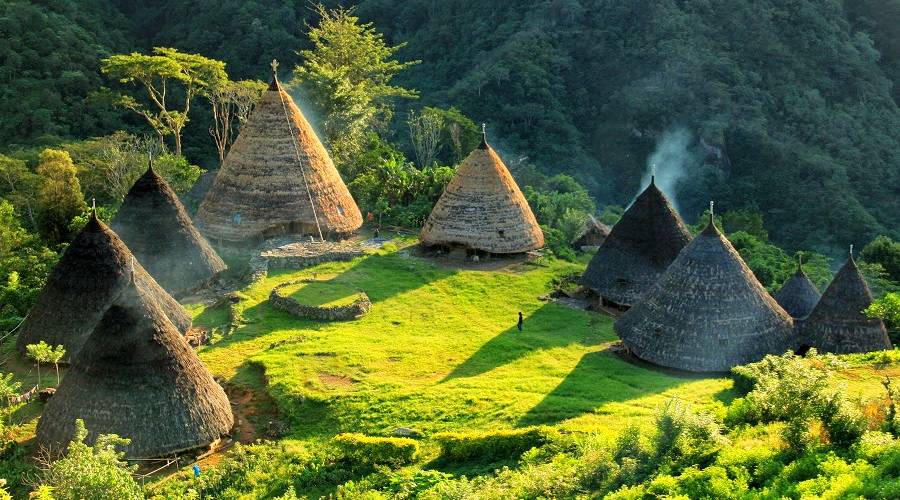
Ecotourism: Embrace Eco-Friendly Travel.
Ecotourism promotes responsible travel, conserving nature and supporting local communities for a sustainable, enriching experience.
Ecotourism, short for ecological tourism, is a responsible and sustainable approach to travel that focuses on minimizing the negative impact on the environment and promoting conservation efforts. The primary goal of ecotourism is to provide an enriching experience for visitors while fostering environmental and cultural awareness. Here are some key aspects and benefits of ecotourism for our planet:
- Conservation of Biodiversity: Ecotourism often takes place in natural areas with high biodiversity. By promoting responsible tourism practices, ecotourism helps conserve these ecosystems, protecting the flora and fauna that inhabit them.
- Environmental Education: Ecotourism encourages visitors to learn about and appreciate the natural environment. Through guided tours, interpretive signage, and educational programs, tourists gain a better understanding of local ecosystems, wildlife, and conservation issues.
- Community Involvement and Empowerment: Many ecotourism initiatives involve local communities, providing them with economic opportunities and empowering them to actively participate in conservation efforts. This can lead to the sustainable development of these communities.
- Preservation of Cultural Heritage: Ecotourism often integrates cultural experiences, promoting respect for indigenous communities and their traditional ways of life. This can help preserve cultural heritage and traditions.
- Low Environmental Impact: Ecotourism strives to minimize its impact on the environment. This includes responsible waste management, energy conservation, and the use of sustainable practices to reduce the carbon footprint associated with tourism activities.
- Financial Support for Conservation: Revenue generated from ecotourism is often directed towards the conservation and protection of natural habitats. Entrance fees, guided tours, and other expenses contribute to funding local conservation initiatives.
- Promotion of Sustainable Practices: Ecotourism encourages businesses and destinations to adopt sustainable practices, such as eco-friendly accommodations, waste reduction, and responsible water usage. This can set a positive example for other tourism industries.
- Preservation of Fragile Ecosystems: Fragile ecosystems, such as coral reefs, rainforests, and wetlands, benefit from ecotourism practices that raise awareness about their importance and help protect them from destructive activities.
- Fostering Responsible Tourism: Ecotourism promotes responsible behavior among tourists, encouraging them to respect local cultures, wildlife, and the environment. This includes adhering to ethical wildlife viewing practices and leaving minimal impact on natural habitats.
While ecotourism offers numerous benefits, it is essential to implement and monitor these initiatives carefully to ensure that they truly contribute to conservation and sustainable development without causing harm to the environment or local communities.
The Importance of Ecotourism:
- Environmental Stewardship: Ecotourism accounts for approximately 20% of international travel, connecting millions of people with nature and fostering a sense of environmental stewardship.
- Sustainable Economic Development: In 2019, ecotourism contributed over $600 billion to the global economy, providing a sustainable income for local communities and supporting conservation efforts.
- Wildlife Conservation: According to the World Tourism Organization, wildlife tourism, a significant component of ecotourism, has been growing at a rate of 3.3% annually, making it a key driver for wildlife conservation.
- Climate Change Mitigation: A study by the International Journal of Tourism Research found that sustainable tourism practices, including those embraced by ecotourism, can significantly contribute to reducing the carbon footprint associated with travel.
- Cultural Preservation: Indigenous tourism, a subset of ecotourism, has seen a steady increase. According to the United Nations, indigenous tourism has grown at an average annual rate of 20%, contributing to the preservation of unique cultures and traditions.
Strategies for Better Development of Ecotourism:
- Community Involvement: Statistics indicate that ecotourism projects that actively involve local communities are more likely to succeed. A study by Conservation International found that such projects are 30% more effective in achieving conservation goals.
- Education and Awareness: Reports show that destinations with comprehensive environmental education programs experience a 15% increase in visitor awareness and responsible behavior, contributing to the long-term success of ecotourism initiatives.
- Sustainable Infrastructure: The World Travel and Tourism Council reports that the demand for sustainable accommodations has grown by 20% annually, indicating a shift towards eco-friendly infrastructure within the tourism sector.
- Responsible Tourism Practices: Surveys reveal that 87% of travelers believe that travel companies should operate responsibly, with an emphasis on protecting the environment and local communities.
- Collaboration with Stakeholders: Collaborative efforts in ecotourism have proven successful. The International Ecotourism Society reports that destinations with strong partnerships between government, businesses, and local communities experience a 25% increase in positive environmental outcomes.
- Monitoring and Evaluation: Data from the Global Sustainable Tourism Council indicates that destinations implementing rigorous monitoring and evaluation mechanisms witness a 40% higher success rate in achieving sustainability targets.
By leveraging these statistics, we can clearly see the tangible benefits of ecotourism and understand the importance of continued efforts to develop and promote sustainable travel practices.






